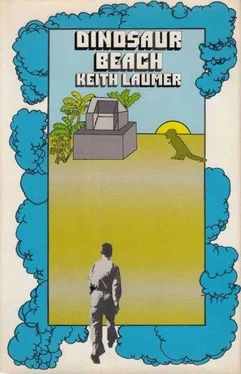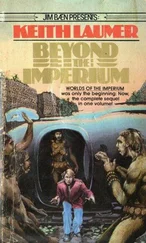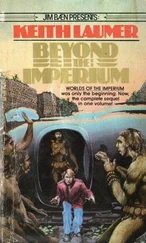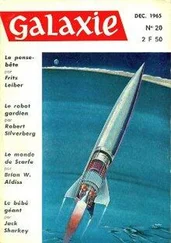Keith Laumer - Dinosaur Beach
Здесь есть возможность читать онлайн «Keith Laumer - Dinosaur Beach» весь текст электронной книги совершенно бесплатно (целиком полную версию без сокращений). В некоторых случаях можно слушать аудио, скачать через торрент в формате fb2 и присутствует краткое содержание. Год выпуска: 1971, ISBN: 1971, Издательство: Charles Scribner's Sons, Жанр: Фантастика и фэнтези, на английском языке. Описание произведения, (предисловие) а так же отзывы посетителей доступны на портале библиотеки ЛибКат.
- Название:Dinosaur Beach
- Автор:
- Издательство:Charles Scribner's Sons
- Жанр:
- Год:1971
- ISBN:0-684-12374-6
- Рейтинг книги:4 / 5. Голосов: 1
-
Избранное:Добавить в избранное
- Отзывы:
-
Ваша оценка:
- 80
- 1
- 2
- 3
- 4
- 5
Dinosaur Beach: краткое содержание, описание и аннотация
Предлагаем к чтению аннотацию, описание, краткое содержание или предисловие (зависит от того, что написал сам автор книги «Dinosaur Beach»). Если вы не нашли необходимую информацию о книге — напишите в комментариях, мы постараемся отыскать её.
Dinosaur Beach — читать онлайн бесплатно полную книгу (весь текст) целиком
Ниже представлен текст книги, разбитый по страницам. Система сохранения места последней прочитанной страницы, позволяет с удобством читать онлайн бесплатно книгу «Dinosaur Beach», без необходимости каждый раз заново искать на чём Вы остановились. Поставьте закладку, и сможете в любой момент перейти на страницу, на которой закончили чтение.
Интервал:
Закладка:
It was a stable piece of real estate; the headland was gone, worn down to a barely perceptible hump in the gray dunes that swept off to the east to disappear into remote distances. That’s why it had once been picked as a Timecast relay station, of course. Oceans had changed their beds, continents had risen and sunk, but Dinosaur Beach was much the same.
I wondered how many millions of years had passed since the last trace of human activity had weathered away, but there was no way to judge. I checked my various emergency transit frequencies, but the ether was dead all across the bands.
I had wrecked the infernal machine, the cannibal apparatus that endured by eating itself; and the explosion had thrown me clear across recorded time, out into the boondocks of forever. I was alive, but that was all.
I had carried out my assignment: I had used every trick in the book to track down the force that had thrown New Era time into chaos. I had found it, and had neutralized it.
The Karg—the pathetic super-cripple—had been ruthless; but I had been more ruthless. I had used everything—and everybody—to the maximum advantage to bring about the desired end.
But I had failed. The barren world around me was proof of that. I had gathered valuable information: information that might save the situation after all; but I was stranded, out of contact. What I had learned wasn’t going to help anyone. It was going to live with me and die with me, on a gray beach at the end of time, unless I did something about it.
“Clear thinking, Ravel,” I said aloud, and my voice sounded as lost and lonely as the last leaf on the last tree, trembling in the gale of the final autumn.
It was cold on the beach; the sun was too big, but there was no heat in it. I wondered if it had engulfed Mercury yet; if the hydrogen phoenix reaction had run its course; if Venus was now a molten world gliding across the face of the dying monster Sol that filled half its sky. I wondered a lot of things. And the answer came to me.
It was simple enough in conception. Like all simple conceptions, the problem was in the execution.
I activated certain sensors built into my nervous system and paced along the beach. The waves roiled in and slapped with a weary sound that seemed to imply that they had been at it for too many billions of years, that they were tired now, ready to quit. I knew how they felt.
The spot I was looking for was less than half a mile along the shore, less than a hundred yards above the water’s edge. I spent a moment calculating where the hightide line would be before I remembered that there were no tides to speak of now. The moon had long ago receded to its maximum distance—a pea in the sky instead of a quarter—and had then started its long fall back. It had reached Roche’s limit eons ago, and there had been spectacular nights on the dying planet Earth as its companion of long ago had broken up and spread into the ring of dust that now arched from horizon to horizon.
Easy come, easy go. I had things to do. It was time to get to them, with no energies to waste on sentimental thoughts of a beloved face long turned to dust and ashes.
I found the spot, probed, discovered traces at eighteen feet. Not bad, considering the time involved. The glass lining was long since returned to sand, but there was a faint yet discernible discontinuity, infinitely subtle, marking the interface that had been its position.
Eighteen feet: four of sand, fourteen of rock.
All I had to do was dig a hole through it.
I had two good hands, a strong back, and all the time in the world. I started, one double handful at a time.
35
If the problem at hand had been more complex, I could have solved it more easily. I was prepared to meet and overcome multiordinal technical obstacles of any degree of sophistication. I had means for dealing with superbrains, ravening energy weapons, even armor-plated meat-eaters. Shoveling sand came in another category entirely.
I started with a circle ten feet in diameter, directly over the target. It took me two twenty-four hour days to empty it of sand, by which time the periphery had grown to twenty feet, due to the low slump angle of the fine sand. That gave me working space to attack the real job.
Making the first crack in the rock took me a day and a half. I walked three miles before I found a loose slab of stone big enough to do the job, and still small enough to move. I moved it by flopping it end over end. It was four feet wide; a simple calculation suffices to suggest how many times that meant I had to lift, push, boom! lift, push, boom! before I had it poised on the dune at the edge of my excavation. A half-hour’s scooping cleared away the sand that had blown in while I was otherwise occupied. Then I lifted my two-hundred-pound nutcracker, staggered forward, and let it fall. It hit sand and slid gently to rest.
I did it again.
And again.
In the end I stood flat on the exposed stone, hoisted my rock, and dropped it edge on. It was only a three-foot fall, but it cracked loose a thin layer of sandstone. I threw the pieces out of the hole and did it again.
On the sixth impact, the hammer broke. That was a stroke of luck, as it turned out. I could lift the smaller half and toss it from the top of the sand pile, a drop of almost eight feet, with encouraging results.
By the end of the fifth day, I had chipped a raggedly circular depression over a foot deep at the center of the sand pit.
By this time I was getting hungry. The sea water was a murky green; not algae, just a saturated solution of all ninety-three elements. I could drink it in small doses; and the specialized internal arrangements with which I, as a Nexx agent, was equipped, managed to make use of it. It wasn’t good, but it kept me going.
As I went deeper, the drop got longer, and thus more effective; but the problem of lifting the boulder and the debris became correspondingly harder. I cut steps in the side of the shaft when I reached the six-foot mark. The heap of sandstone shards grew; the level sank. Eight feet, ten, twelve. I struck a harder layer of limestone, and progress slowed to a crawl; then I encountered a mixture of limerock and clay, easy to dig through, but very wet. Four feet to go.
Four feet of stiff abrasive clay, a handful at a time, climbing one-handed up a ten-foot shaft, tossing it away, climbing back down. Working under a foot of water, two feet of water.
Three feet of water. The muck was oozing in from the sides, filling the excavation almost as fast as I emptied it. But I was close. I took a deep breath and ducked under and probed down through clay-and-seashell stew and sensed what I wanted, very near. Three more dives and I had it. I held it in my fist and looked at it and for the first time admitted how slight the odds had been that I’d find it there, intact.
Once, in another lifetime, I had out-jumped from the Dinosaur Beach Transfer Station, back along my own life line. I had ended on the deck of a stricken ship, just in time to get my earlier self killed in line of duty by a bullet from a Karg gun.
Stranded, I had used his emergency jump circuitry to pull me back to Dinosaur Beach, where I landed in a bog-hole that marked the place where the station had been once, a thousand years before. And so had the corpse, of course. In the excitement of getting my first lungful of rich, invigorating mud, I hadn’t devoted much thought to the fate of the dead me.
He had sunk into the mud, unnoted, and waited quietly for geology to seal him in.
Which it had, under fourteen feet of rock, and four of sand. There was nothing whatever left of the body, of course, not a belt buckle or a boot nail or a scrap of ischium.
But what I held in my hand now had survived. It was a one-inch cube of a synthetic material known as eternium, totally non-chronodegradable. And buried in its center was a tuned crystal, a power pack, and a miniaturized grab-field generator. Emergency gear, carried by me on that original mission, the memory of it wiped out by the post-mission brain-scrape-until a sufficient emergency arrived to trigger the recall.
Читать дальшеИнтервал:
Закладка:
Похожие книги на «Dinosaur Beach»
Представляем Вашему вниманию похожие книги на «Dinosaur Beach» списком для выбора. Мы отобрали схожую по названию и смыслу литературу в надежде предоставить читателям больше вариантов отыскать новые, интересные, ещё непрочитанные произведения.
Обсуждение, отзывы о книге «Dinosaur Beach» и просто собственные мнения читателей. Оставьте ваши комментарии, напишите, что Вы думаете о произведении, его смысле или главных героях. Укажите что конкретно понравилось, а что нет, и почему Вы так считаете.












